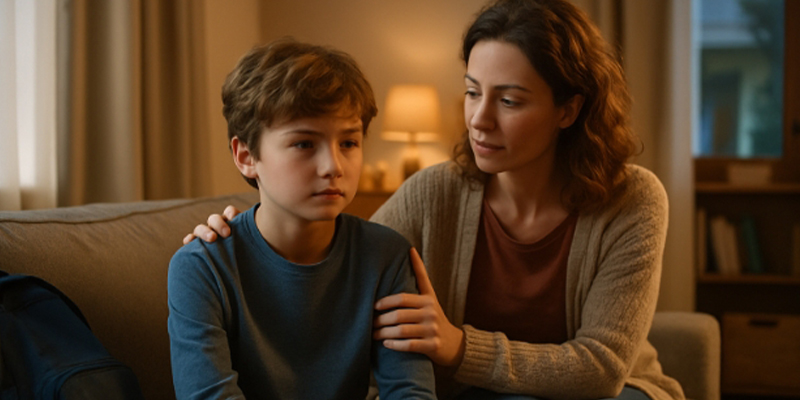The Sleep-Emotion Connection Most Parents Miss
You may be trying everything — new routines, clearer boundaries, more empathy.
But if your child is still melting down or emotionally fragile during the day, it’s time to look at sleep.
At Breakthrough ADHD Center and ADHD BrainCode Center, sleep is one of the first domains we assess — because we’ve seen what happens when it’s overlooked.
Why Gifted ADHD Kids Struggle with Sleep
1. High arousal brain patterns
Their brains don’t “slow down” easily at night. Racing thoughts and sensory sensitivity keep them alert (Silverman, 1993).
2. Irregular melatonin production
Screen time, late-night thinking, and stress disrupt natural sleep rhythms (Barkley, 2015).
3. Anxiety and overthinking
Many gifted ADHD children lie awake worrying about the future, the day, or their own self-worth (Webb et al., 2007).
When sleep suffers, so does everything else: regulation, learning, flexibility, resilience.

Strategy 1: Build a Brain-Calming Routine
Start with predictable steps that signal the body it’s time to rest.
Ideas that work
- Consistent bedtime and wake-up times
- Screens off 60 minutes before bed
- Calm activities like drawing, puzzles, or audiobooks
Frame it as a gift, not a punishment: “Your brain worked hard today. Let’s help it rest well.”
Strategy 2: Use Counseling to Address Bedtime Anxiety
Gifted kids are deep thinkers. Nighttime is often when worries surface.
In counseling, we work on:
- Releasing thoughts through journaling or storytelling
- Practicing grounding techniques like breathing or visualization
- Naming fears without judgment
These tools give children agency over their minds — instead of fear running the show.
Strategy 3: Use Neurofeedback to Balance Sleep-Wake Cycles
When appropriate, neurofeedback helps regulate the electrical patterns behind sleep problems.
At our center, we target:
- High beta activity in overstimulated brains
- Low alpha/theta for trouble falling asleep
- Midline dysregulation that impacts sleep transitions
Studies show neurofeedback improves not only sleep quality but also daytime mood and focus in children with ADHD (Arns et al., 2009; Wu et al., 2024).
Rested brains regulate better.

Final Thoughts
If your child’s emotional regulation feels unpredictable or fragile, don’t forget to check their sleep.
A more rested brain leads to better mornings, calmer afternoons, and fewer breakdowns at bedtime.
Let’s build nights that truly restore — for your child, and for you.
Sammy Oh, PhD DNM
Founder, Breakthrough ADHD Center and ADHD BrainCode Center
Certified Biofeedback Practitioner
Truebearing Approved Neurofeedback Therapist
Functional Nutritionist
If this blog resonated with you and you’re ready to take the next step, we invite you to connect with our team.
We offer personalized support, parent coaching, and neurocognitive tools tailored for gifted ADHD children.
Let’s explore what’s possible together.
Click here to connect with us through our secure web form
References
Arns, M., de Ridder, S., Strehl, U., Breteler, M., & Coenen, A. (2009). Efficacy of neurofeedback treatment in ADHD: the effects on inattention, impulsivity and hyperactivity. Clinical EEG and Neuroscience, 40(3), 180–189.
Barkley, R. A. (2015). Attention-deficit hyperactivity disorder: A handbook for diagnosis and treatment (4th ed.). Guilford Publications.
Silverman, L. K. (1993). Counseling the gifted and talented. Love Publishing Company.
Webb, J. T., Gore, J. L., Amend, E. R., & DeVries, A. R. (2007). A parent’s guide to gifted children. Great Potential Press.
Wu, G., He, Q., Li, D., Zhang, Z., Miao, J., & Shu, Y. (2024). Comparative Efficacy of Neurofeedback Interventions for Attention-Deficit/Hyperactivity Disorder in Children: A Network Meta-Analysis. Brain and behavior, 14(12), e70194.
